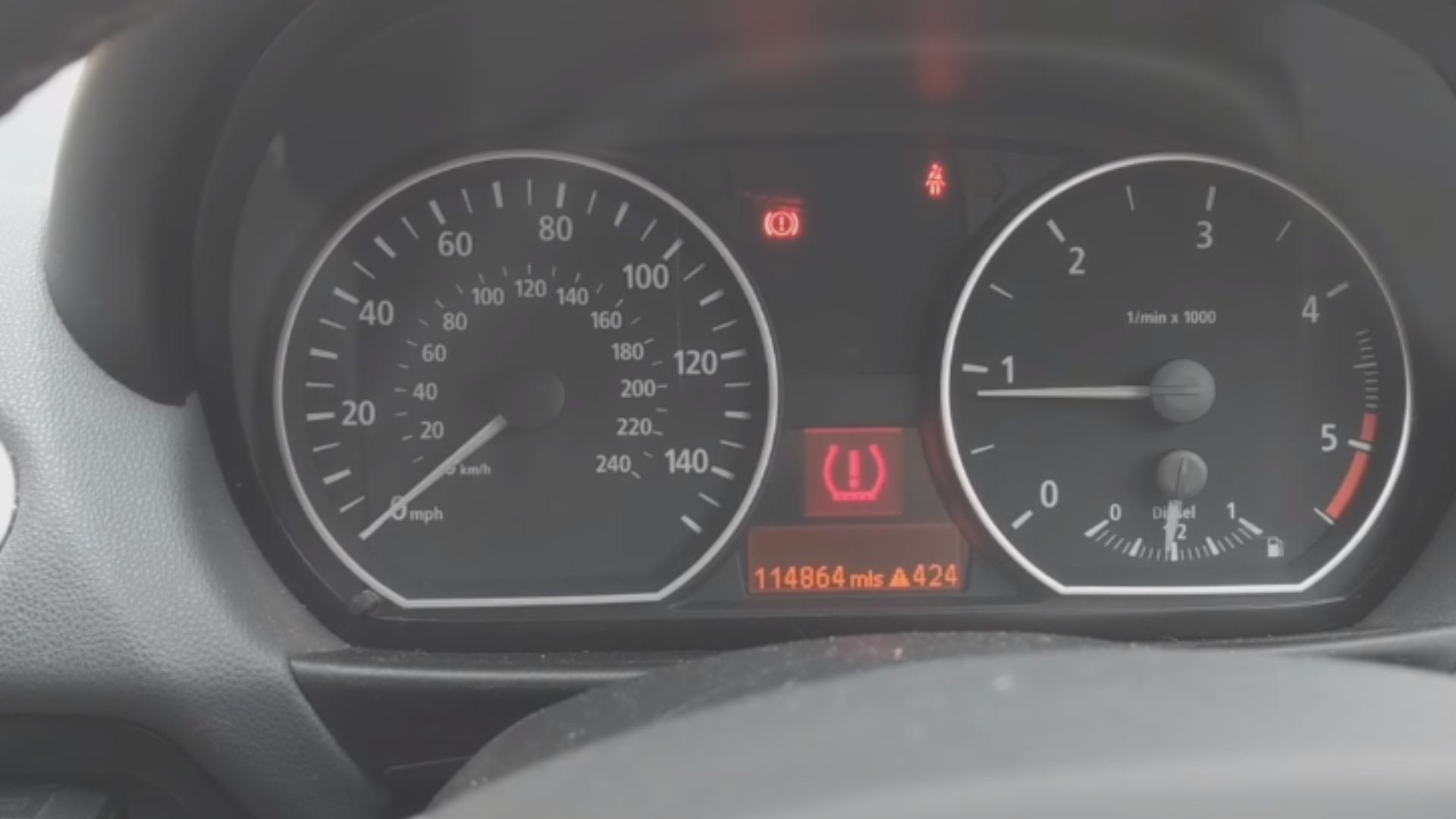The tire pressure monitoring system shows the driver the continuous tire pressures from all four wheels, which would ensure you always know what is going on. However, many reports have arisen of the TPMS constantly being stuck in the on position.
The main reason for this is that the tire pressure of the vehicle might not be at the optimal rate. The vehicle is suggesting that you should stop and check the tire pressure to ensure that it is in optimal working condition.
BMW Tire Pressure Warning Keeps Coming On
1. Faulty Tire Pressure
The first reason that your warning system would constantly come on is the reason it has been installed in the first place. The system would let you know if there are any issues with the tire pressure and this would be a warning that you should have your tire pressure checked to keep them in working condition.
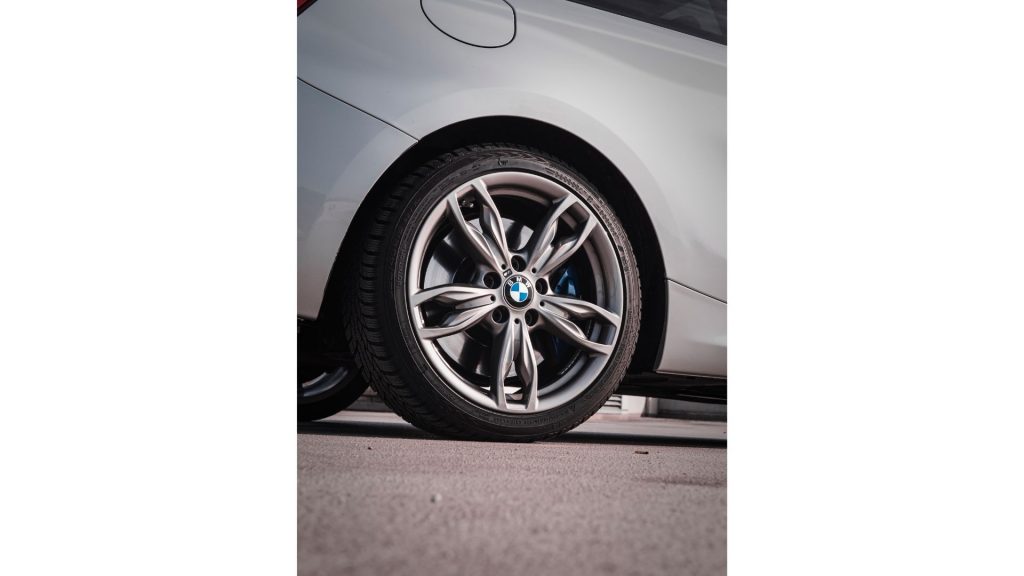
Before you dismiss that the sensor might be giving you some sort of faulty reading or warning, it would be best for you to check the tires on the wheels. You might find that you have missed one of the faulty tires, which could be triggering the warning light. It is important to first check manually that all the tires are in working order.
2. Build Up Of Water
Water can have a significant impact on the tire pressure readings from your vehicle. If there is a significant build-up of water and the vehicle is stationary due to this water, you would be dealing with some incorrect tire pressure readings, which would affect the sensors.
Water might often accumulate around the spare tire, which is often located in the rear of the vehicle. The sensors do not work to give you an independent reading and you could find that you get a cumulative reading from all the sensors which would activate the warning on the dash.
While the pressure in the rear tire might not be of extreme importance, the buildup of water would significantly affect the pressure readings and this might cause some issues. Once you let the water drain or get out of the tire, it would stabilize, which means the warning on the tires should eventually dissipate.
3. Faulty Sensor
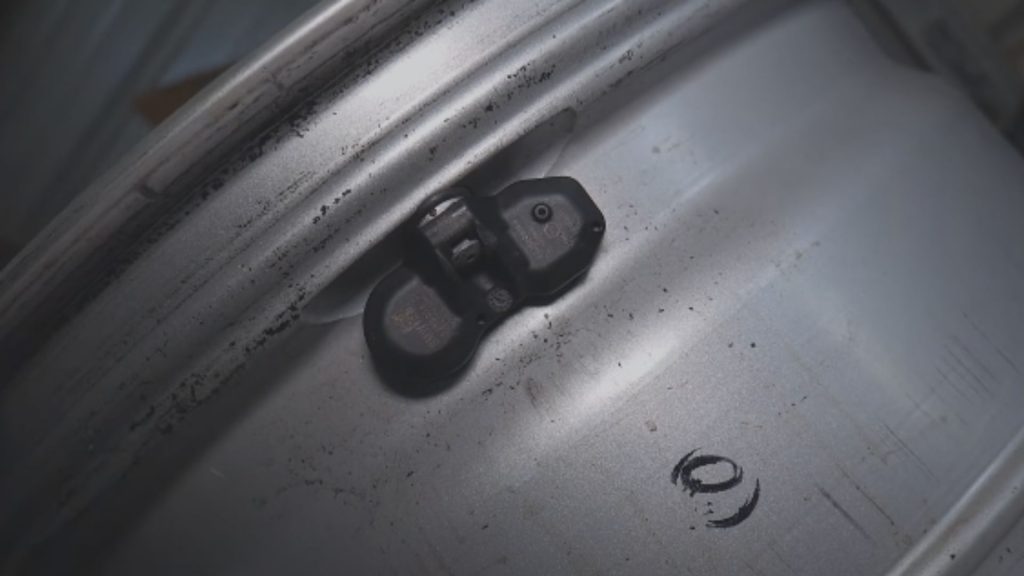
As you might have guessed, each tire will have a fixed sensor located in the tire and these sensors have the responsibility of communicating with the receiver module in the ECU. Occasionally, you might find that a sensor could be faulty and this would indicate warnings that the tire pressure is not at the optimal level.
These sensors might get damaged when you drive erratically or when the vehicle takes a bump. This could mean that the sensor is incorrectly located or that the shaking causes the sensor to lose some of the measurement power.
To fix this issue, you would need to visit a local certified BMW mechanic or dealership, which should help you to fix the sensor issue.
The replacement costs would vary, but according to the latest estimates, the price for this part is around $400. When you factor in that additional labor is added, you could pay as much as $800 to have the part fixed.
4. Mechanical Damage To The Tire
While this is not a fault of the component, your vehicle could be dealing with some mechanical damage on the tire itself. The mechanical damage would cause some issues with the pressure and this would significantly affect the pressure. Keep in mind that this is by no means a fault of the sensor, but rather a warning.
Mechanical damage can happen for various reasons, including when you accidentally hit a pothole or when there are other significant damage factors. The indicator could be showing you that you are dealing with a slow puncture, which might affect the tire pressures significantly whilst you are driving the car.
The best way to fix this problem would be to visit your local dealership and this would ensure that you can have the mechanical damage fixed. Unfortunately, the prices would vary significantly and you might need to pay a lot if the vehicle has some significant and expensive damage to the tires or the wheel.
5. New Rims/ Tires
One of the major issues facing some drivers is when it comes to new rims on the car. Eventually, you might feel like upgrading your tires or rims to something bigger, which could affect the sensors in the wheel. If you put new tires on your vehicle, the sensors need to be recalibrated to ensure that they are functional.
If the rims sensor is not calibrated, you would need to have them calibrated or they would detect that the rims and tires do not have the tire pressure as the program would suggest. Unfortunately, this is one of those issues, which BMW or the tire fitters need to do to ensure that the vehicle is in the optimal range.
I should mention that it is hard to calibrate any electronics yourself and BMW will simply connect a laptop or computer to the ECU, which gives them full access to all the components. Once they manage to make the adjustments, the sensors should be working normally and this would enable them to operate normal.
Does Resetting Fix The Issue? How Do You Reset The BMW TPMS?
Once you have changed the tires or when you have refilled the air pressure inside the tires, you will need to reset the TPMS. While many might think you will need to visit your dealership, BMW has included a reset feature on the computer, which can be accessed by any person looking to do so.
You would need to access the vehicle status of the car and this will allow you to access the tire pressure monitor feature. Once you access the tire settings, you could simply click the reset button and it would calibrate the tire pressure to the current levels.
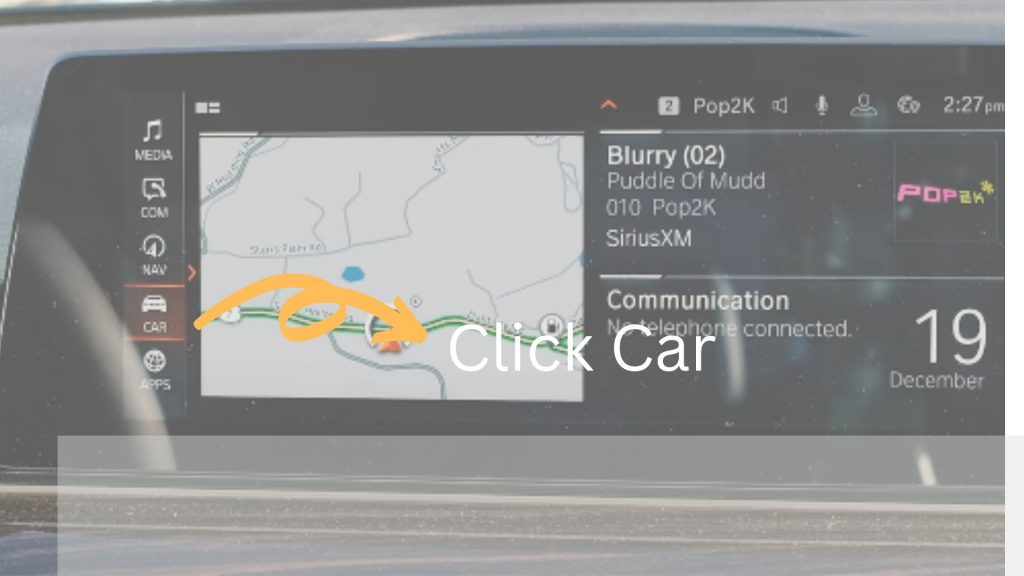
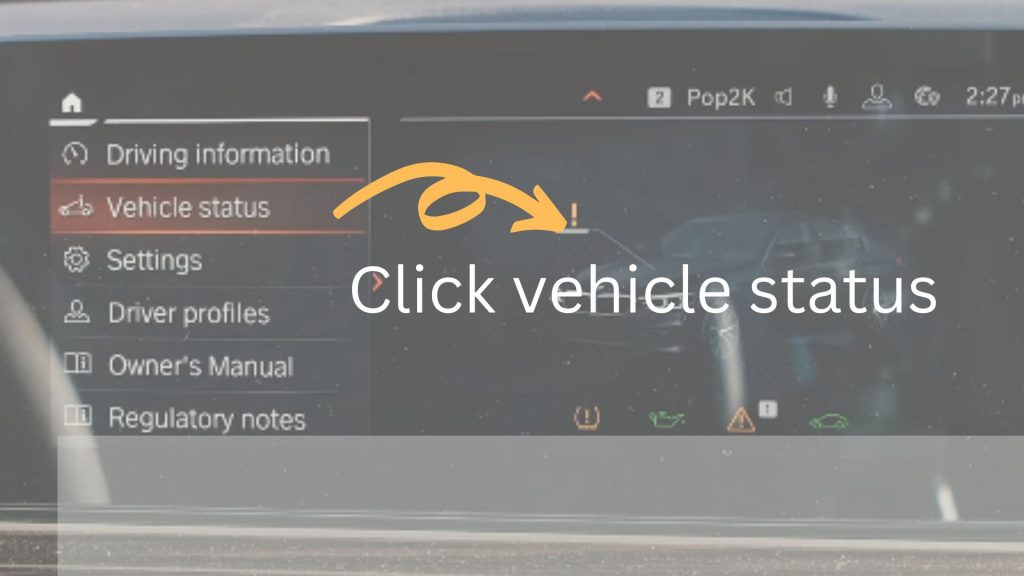
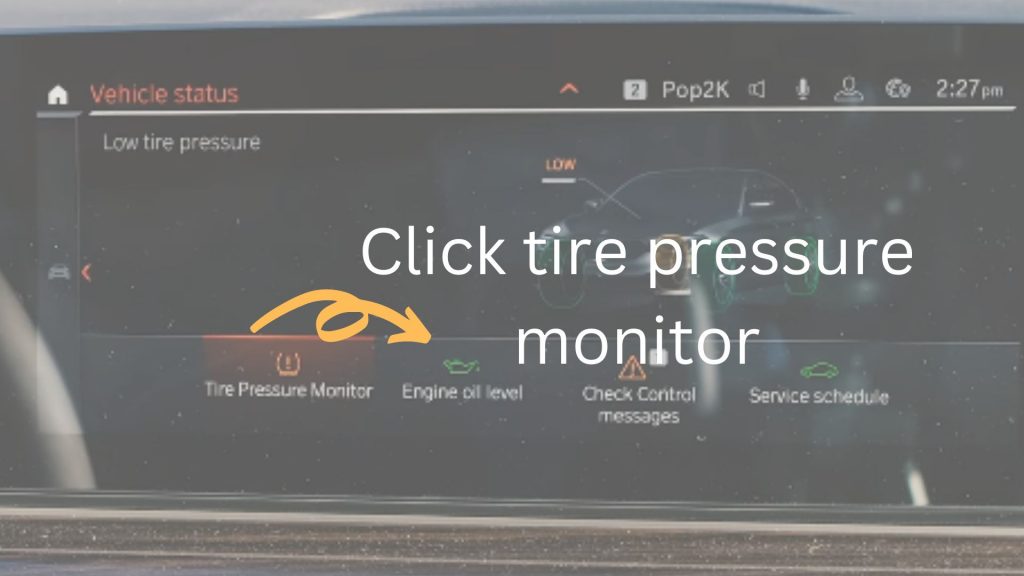
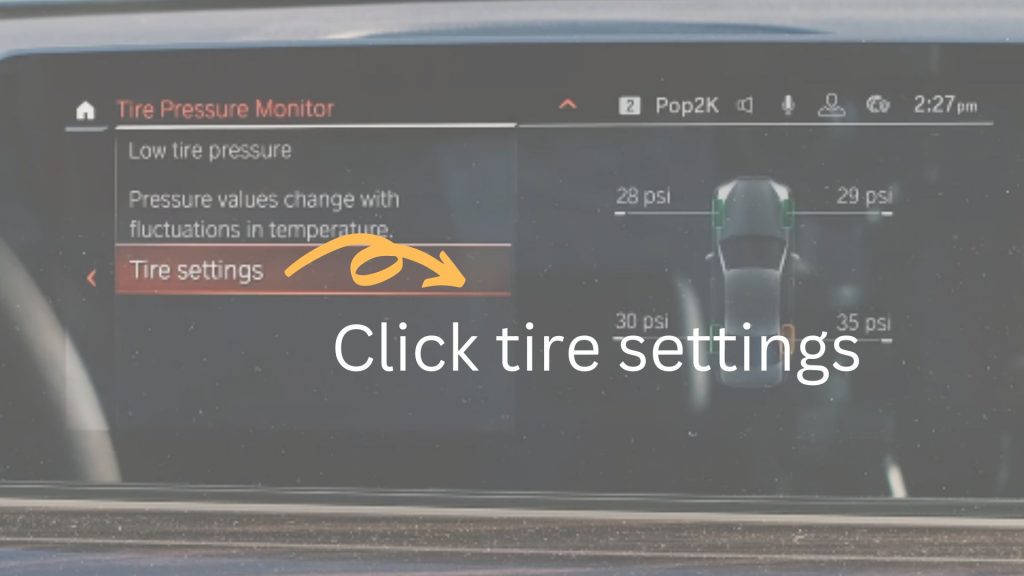
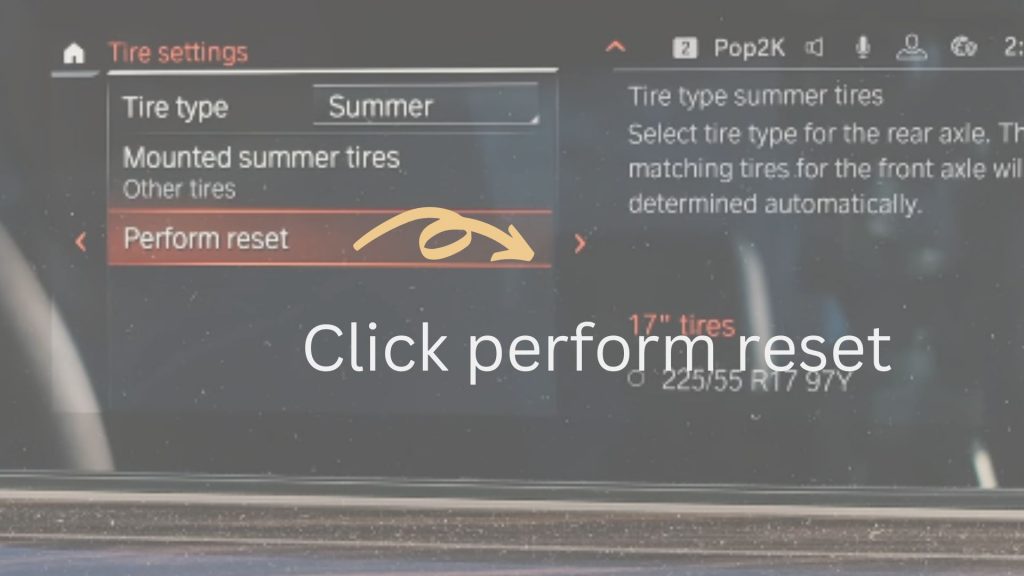
It is important to make sure that the vehicle is stationary and the engine is running to give you access to the computer. If you are driving, the tire pressures could fluctuate and this would affect the reset settings and could leave you with a permanent warning light.
Once you have clicked on the reset button and the tire pressure sensors have reset, this would not take effect immediately. You will need to drive a bit for the tire pressure to start stabilizing, which could vary from vehicle to vehicle.
According to BMW, it could take as much as 20-minutes for the TPMS to fully reset.
Additionally, the road you choose would also have an effect and I would recommend finding a smooth road, which should be easy for you to drive on at a slow speed. The idea is that you would want to keep the traveling speed consistent, which should allow you to stabilize all the tire pressures and find the new normal.
BMW TPMS Won’t Reset – Why?
If you click the reset button and the tire pressure warning is continuing to alarm you, you might be dealing with a fault inside the sensor. Additionally, many people struggle to reset the TPMS since they do not have the patience to wait out the full 20-minutes while they are driving slowly.
If the sensors are at fault, they would not reset, even when you are following all the instructions. Additionally, you might have some issues with tire pressure preventing the sensors from resetting.
The best thing to do is to be patient and wait out the reset period or you might need to visit a BMW-certified mechanic for assistance.
Related post:

